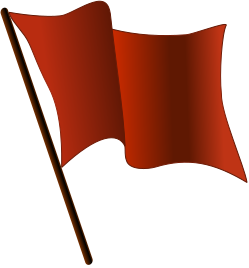
Back Sosialisme Afrikaans Sozialismus ALS Socialismo AN Gemǣnscipes rǣd ANG اشتراكية Arabic إشتراكية ARY اشتراكيه ARZ সমাজবাদ Assamese Socialismu AST Sosializm Azerbaijani
| Acest articol sau această secțiune are bibliografia incompletă sau inexistentă. Puteți contribui prin adăugarea de referințe în vederea susținerii bibliografice a afirmațiilor pe care le conține. |

Socialismul este o gamă de sisteme economice și sociale caracterizate prin proprietatea socială a lucrătorilor și controlul asupra mijloacelor de producție;[10] precum și ideologiile politice, teoriile și mișcările care au ca scop să le implementeze.[11] Proprietate socială se poate referi la publică, colectivă, sau proprietate cooperativă sau la altă combinație formată de acestea.[12] Deși există mai multe forme de socialism și nu există nicio definiție unică care să le cuprindă pe toate acestea,[13] dreptul de proprietate socială este elementul comun împărtășit de diversele sale forme.[5][14][15]
Prin socialism se mai înțelege ansamblul doctrinelor social-politice care combat individualismul, apără noțiunile de egalitate și solidaritate și constituie un proiect atât economic (colectivism economic, autogestiune, economie mixtă), cât și social (egalitate in drepturi, egalitate de șanse) și politic (democrație).
Astăzi, socialismul cuprinde într-un mod foarte larg și general pe toți cei ce doresc schimbarea organizării sociale în vederea obținerii unei mai mari justiții sociale: el îl include atât pe socialiștii marxiști, cât și pe social-democrați și pe anarhiști. Aceste curente se înfruntă în probleme fundamentale: pentru sau contra statului, pentru sistemul parlamentar sau pentru democrația directă.
- ^ Sinclair, Upton (). Upton Sinclair's: A Monthly Magazine: for Social Justice, by Peaceful Means If Possible.
Socialism, you see, is a bird with two wings. The definition is 'social ownership and democratic control of the instruments and means of production.'
- ^ Nove, Alec. „Socialism”. New Palgrave Dictionary of Economics, Second Edition (2008).
A society may be defined as socialist if the major part of the means of production of goods and services is in some sense socially owned and operated, by state, socialized or cooperative enterprises. The practical issues of socialism comprise the relationships between management and workforce within the enterprise, the interrelationships between production units (plan versus markets), and, if the state owns and operates any part of the economy, who controls it and how.
- ^ Rosser, Mariana V. and J Barkley Jr. (). Comparative Economics in a Transforming World Economy. MIT Press. p. 53. ISBN 978-0262182348.
Socialism is an economic system characterized by state or collective ownership of the means of production, land, and capital.
- ^ "What else does a socialist economic system involve? Those who favor socialism generally speak of social ownership, social control, or socialization of the means of production as the distinctive positive feature of a socialist economic system" N. Scott Arnold. The Philosophy and Economics of Market Socialism : A Critical Study. Oxford University Press. 1998. p. 8
- ^ a b Busky, Donald F. (). Democratic Socialism: A Global Survey. Praeger. p. 2. ISBN 978-0275968861.
Socialism may be defined as movements for social ownership and control of the economy. It is this idea that is the common element found in the many forms of socialism.
- ^ Bertrand Badie; Dirk Berg-Schlosser; Leonardo Morlino (). International Encyclopedia of Political Science. SAGE Publications, Inc. p. 2456. ISBN 978-1412959636.
Socialist systems are those regimes based on the economic and political theory of socialism, which advocates public ownership and cooperative management of the means of production and allocation of resources.
- ^ Zimbalist, Sherman and Brown, Andrew, Howard J. and Stuart (octombrie 1988). Comparing Economic Systems: A Political-Economic Approach. Harcourt College Pub. p. 7. ISBN 978-0155124035.
Pure socialism is defined as a system wherein all of the means of production are owned and run by the government and/or cooperative, nonprofit groups.
- ^ Brus, Wlodzimierz (). The Economics and Politics of Socialism. Routledge. p. 87. ISBN 978-0415866477.
This alteration in the relationship between economy and politics is evident in the very definition of a socialist economic system. The basic characteristic of such a system is generally reckoned to be the predominance of the social ownership of the means of production.
- ^ Michie, Jonathan (). Readers Guide to the Social Sciences. Routledge. p. 1516. ISBN 978-1579580919.
Just as private ownership defines capitalism, social ownership defines socialism. The essential characteristic of socialism in theory is that it destroys social hierarchies, and therefore leads to a politically and economically egalitarian society. Two closely related consequences follow. First, every individual is entitled to an equal ownership share that earns an aliquot part of the total social dividend…Second, in order to eliminate social hierarchy in the workplace, enterprises are run by those employed, and not by the representatives of private or state capital. Thus, the well-known historical tendency of the divorce between ownership and management is brought to an end. The society – i.e. every individual equally – owns capital and those who work are entitled to manage their own economic affairs.
- ^ [1][2][3][4][5][6][7][8][9]
- ^ "2. (Government, Politics & Diplomacy) any of various social or political theories or movements in which the common welfare is to be achieved through the establishment of a socialist economic system" "Socialism" at The Free dictionary
- ^ O'Hara, Phillip (septembrie 2003). Encyclopedia of Political Economy, Volume 2. Routledge. p. 71. ISBN 0-415-24187-1.
In order of increasing decentralisation (at least) three forms of socialised ownership can be distinguished: state-owned firms, employee-owned (or socially) owned firms, and citizen ownership of equity.
- ^ Peter Lamb, J. C. Docherty. Historical dictionary of socialism. Lanham, Maryland, UK; Oxford, England, UK: Scarecrow Press, Inc, 2006. p. 1.
- ^ Arnold, Scott (). The Philosophy and Economics of Market Socialism: A Critical Study. Oxford University Press. pp. 7–8. ISBN 978-0195088274.
This term is harder to define, since socialists disagree among themselves about what socialism ‘really is.’ It would seem that everyone (socialists and nonsocialists alike) could at least agree that it is not a system in which there is widespread private ownership of the means of production…To be a socialist is not just to believe in certain ends, goals, values, or ideals. It also requires a belief in a certain institutional means to achieve those ends; whatever that may mean in positive terms, it certainly presupposes, at a minimum, the belief that these ends and values cannot be achieved in an economic system in which there is widespread private ownership of the means of production…Those who favor socialism generally speak of social ownership, social control, or socialization of the means of production as the distinctive positive feature of a socialist economic system.
- ^ Hastings, Mason and Pyper, Adrian, Alistair and Hugh (). The Oxford Companion to Christian Thought. Oxford University Press. p. 677. ISBN 978-0198600244.
Socialists have always recognized that there are many possible forms of social ownership of which co-operative ownership is one...Nevertheless, socialism has throughout its history been inseparable from some form of common ownership. By its very nature it involves the abolition of private ownership of capital; bringing the means of production, distribution, and exchange into public ownership and control is central to its philosophy. It is difficult to see how it can survive, in theory or practice, without this central idea.
